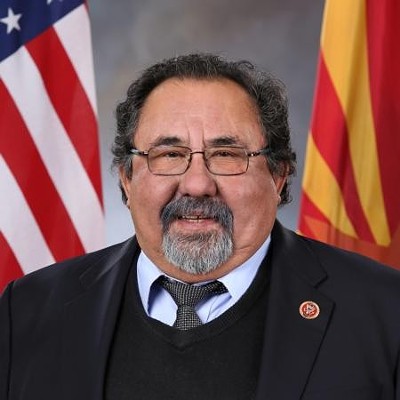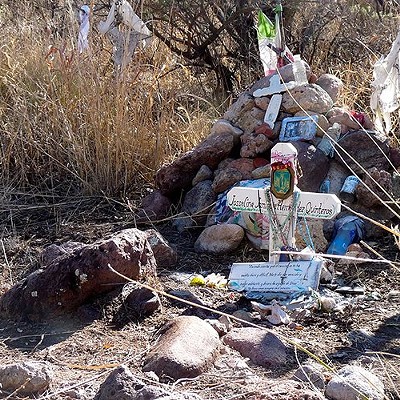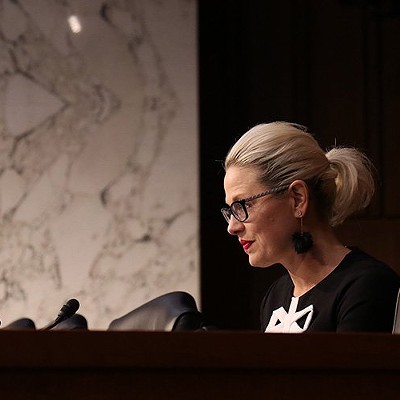Monday, January 18, 2016
Into the Mild: Journal From a Refugee Camp: Week Five
Lesbos Island, Greece – January 2016
This is part six of a journal I’m keeping during my month working at a refugee camp in Greece. Part five, covering working at a distribution tent and finding a full-time translation job, is here.
Jan. 4
Today was my first full day as a Farsi interpreter at a medical clinic at Camp Moria, Lesbos Island’s biggest refugee camp. Afghans or Iranians who speak clear English are a rarity on the island, so I’ve handled a handful of different translation jobs. They all left me feeling meh. The medical clinic was different though. Working with needy people, avoiding egos, and having a uniquely needed skill set were all improvements over my previous jobs. Working in a warm building with the majority of the cute volunteers on the island was a nice bonus as well.
Working at the medical clinic finally felt like my calling.
Most of the cases today were fevers and colds. It was a good way to ease into a language that I studied 10 years ago and haven’t used again until a week ago. Hot, cold, fever, cough, and vomit were the most common words. I had prepared a long list of medical terms over the weekend and was very grateful that I didn’t have to consult it often today.
One of the rafts had hit a rock near the shore and popped that morning, leading to everyone on the raft walking the last 20 feet to the shore. While there were no drownings or hypothermia from it, one particular injury kept popping up.
"Please stop making me laugh about people getting sea urchins stuck in their feet," I giggled to S, a doctor from a medical team from Vermont. He wasn’t trying to make me laugh. He wasn’t trying not to either. I was fortunately able to hold it in while around patients.
Sobriety came quickly as a visibly pregnant woman came into the clinic. She wore tears on her cheek and her hands on her stomach. She had fallen out of the raft and crashed into a rock, stomach first. She was panicked that her baby was hurt and told us repeatedly that she was 8.5 months pregnant. It was a big relief for everybody when we found that she had “only” broken a rib. The baby would be fine.
Jan. 5
Today was quite similar to yesterday, but fevers and colds were replaced by constipation and vomiting. I was joined by J, a Chinese-Swedish medical student who spoke five languages but refused to say that she was fluent in more than Swedish. Her and I handled most Farsi cases easily, but occasionally we just couldn’t find a word we needed. This was frustrating. There were three different interpreters who spoke Arabic as their native tongue, while J and I had each studied Farsi for roughly a year and sometimes dug through dictionaries or cheat sheets without luck. The doctors continually reassured us that we were doing fine. Hand gestures work as well as spoken words when telling someone how a rectal suppository works, I suppose.
An older woman who complained of bad headaches and a fever arrived in the afternoon. When we took her temperature and blood pressure as we do for every patient, she panicked. She cried as she explained us what her temperature usually was and how sick she must be. Her temperature and blood pressure were largely normal, but she still desperately asked us to feel her hair and forehead. While she wouldn’t listen to us telling her about how normal her measurements were, she responded well to affection. One nurse hugged her and I held her hand as I explained slowly to her You are in Europe. There are many doctors here and you will not use more smugglers. You are safe here. After 10 minutes of this and some over-the-counter pain medication, she left the clinic smiling and promised to come back if her condition got worse.
Jan. 6
If I was a nose & throat specialist on Monday and a gastrointestinal system specialist on Tuesday, today I was a counselor.
First came a boy who was deathly afraid of needles. He ran out of the clinic when we told his mother that he would need to take medication for his cough. We were able to bring him back by promising him that his fever medication didn’t need to be injected, but he panicked again when he saw the needleless syringe that we used to measure his dosage. We convinced him to drink the cough syrup and he finally left calmly, but not before promising him that the syringe his mother had wasn’t for shots. May God have mercy on the doctor who has to give the boy vaccinations.
Later, a pregnant woman with signs of hypothermia came in with her family. We treated her for hypothermia and made arrangements for them to go to Camp Pikpa, a refugee camp on the island for families with special health conditions. Her husband and her teenage son refused to go. They said to us that they needed to catch the ferry to Athens in two hours. I explained to them that the woman should be at a hospital and that it was too late to buy a ferry ticket, but they just gave me angry stares. Since they apparently didn’t care about the pregnant woman’s hypothermia or the fact that they couldn’t leave on the ferry that night, I brought out my cell phone and showed them pictures of the tent where I used to stay at Camp Pikpa, as well as pictures of the community areas and parties that happened there. I explained to them that there are heaters in the tents, hot showers, and a free kitchen to use. They still refused to go.
We eventually convinced them that the woman needed to stay at the hospital until she was healthy again. They reluctantly agreed to leave. Hours later, we got an angry phone call from the Ice Queen herself, the nurse who runs Camp Pikpa’s aid station. She was upset with us for sending the family there. No good deed goes unpunished.
The most haunting case of the day was a woman who was looking for her daughter. We occasionally have patients whose children got lost at camp while a parent was waiting in one line or another, but this woman was panicked. After talking to her further, we found that her daughter had been gone for weeks. The most accurate location she could give us for her daughter was “somewhere near the (Afghan) border with Iran.” As she went on, we learned that her husband had been murdered in Afghanistan and she feared that the Taliban had her daughter. We did our best to comfort her as we linked her with a United Nations High Commissioner for Refugees representative and explained an internet site that could be used to link her and her daughter back together. Baleh, her daughter understood how the internet worked, and baleh, she will be able to use the site without any difficulties, but you could tell that she had lost hope. An acceptance of defeat calmed her face, but no amount of reassurances would soothe her.
Jan. 7
The skies opened during the morning and the island received a torrential downpour for 12 hours. Beyond walking to work through a hailstorm, nothing memorable happened today. We had seven total patients and not one of them spoke Farsi.
This was the last night on the island for my Chinese-Swedish flatmate, leaving me without a co-interpreter and an awesome friend. Another day, another amazing friend who I'll never see again. Traveling sucks.
Jan. 8
An odd theme for the day was Iranian vice.
An Iranian man came in having difficulty withdrawing from his opium addiction. He had gone cold turkey three weeks ago when he began his journey across the Middle East and into Europe, and was very adamant that we couldn’t use valium or any other addictive drugs to treat him. Another Iranian came in with a recent (and terrible) tattoo reading “LSD fuck” on his knuckles. His hand was badly swollen. When a nurse went to the back to get pain medication for him, he brought out his cell phone and proudly showed everybody a photo album full of drugs. Later, a couple in their second trimester came in wanting to terminate their healthy pregnancy. Fortunately, the man spoke respectable English and my help wasn’t needed for this one.
I went on an outreach that afternoon with S, a Trinidadian volunteer, to find sick refugees who hadn’t been to the clinic yet. I instead got pulled into the Greek police headquarters at camp. I acted as an interpreter to get names, birthdays, and national origins of the Farsi speakers arriving at camp. There was lots of background noise, many shivering people had trouble speaking, and some of the tribal accents were difficult to understand. Please don’t let this be his official European Union identification. Please don’t let this be his official European Union identification, I pleaded to myself as I nervously wrote Gollum in the name field of a card. Luckily, these were only used at the camp. I was thankful when an Iranian woman took my position after 20 minutes.
Jan. 9
Today was chaos.
Three days worth of boats had come in overnight, with many of these people having stayed in Turkey’s snowy forests prior to arriving. The morning was full of people with injured feet and legs from walking barefoot or in sandals through miles of snowy paths. We had to carry or assist several people from the road to the clinic, as well as try to recruit other interpreters to leave their posts and volunteer with us.
Today was also the worst work I’ve ever done. Fevers, infections, medication instructions, various symptoms, and consoling words have all become very easy for me to talk about and translate. But today was special.
One man had an arm amputated at the elbow, but felt phantom pain where his hand used to be. He also had a surgery go awry and still had old screws in his swollen ankle. We gave him acupuncture, plus ran several rounds of light electricity through the needles we were using. The muscle spasms in his amputated arm stopped after 30 minutes of treatment.
That was all pretty hard to translate.
So were the complications that a woman was having from a recent operation to remove kidney stones. So was the case of a woman who had a series of petite mal seizures several years ago and still took medication for that, but was here for a completely different reason. As was the woman who needed OBGYN help, but was uncomfortable talking about these things with a male interpreter and refused to use any specific terms. She left with only itch cream and an angry scowl.
I couldn’t keep up with the tempo of the patients and the specialized vocabulary required. My brain began to shut down after a while. I started using Spanish and Farsi interchangeably. Boroyeh chand dìa een rah dolor dareed? and Bokhor tres qors cada seis sa’at were understood by exactly nobody. I was the only Farsi interpreter at the clinic, but I had to force myself to take breaks so my brain could catch up.
I stayed an hour later than normal to help with the influx of patients, but left when things calmed again. My brain needed rest. I later realized that today was the seventh anniversary of my first seizure and was glad that I stopped working before pushing myself to that point again.
Jan. 10
Today was Sunday, my weekend. I had plans to explore the island. Then the rain started. I read The Beach in its entirety today, as well as religious sermons and emails from friends.
Mostly, I rested. I needed rest more than anything.
Tags: IntoTheMild , ISIS , War , Refugees , Crisis , Immigration














